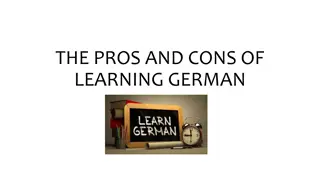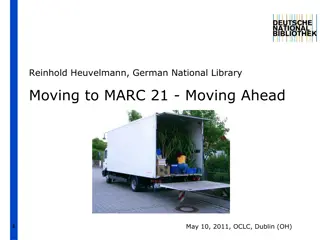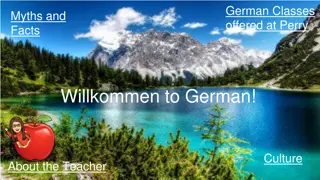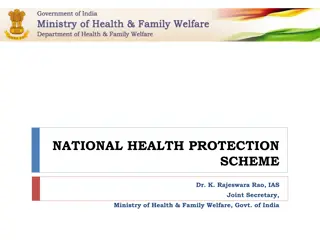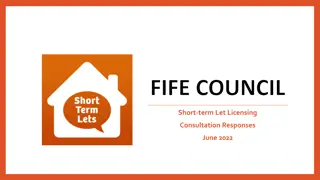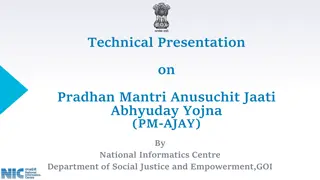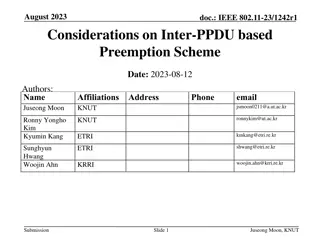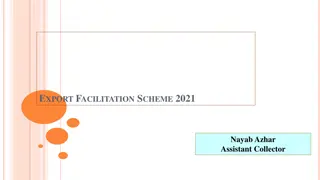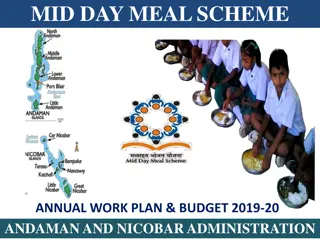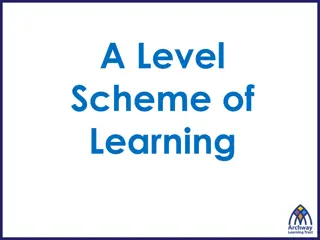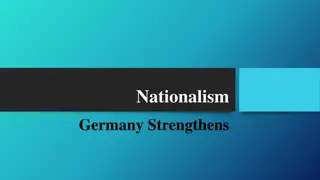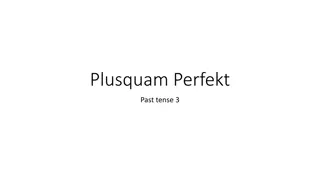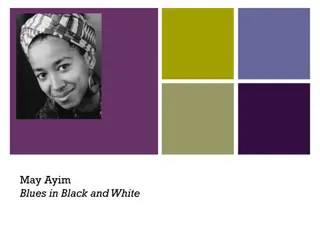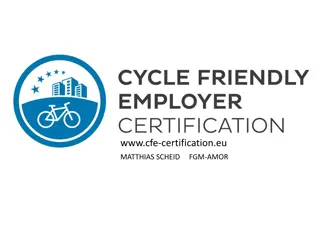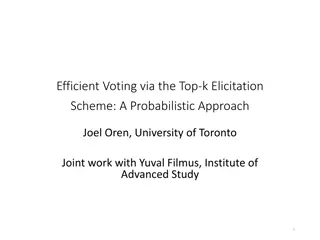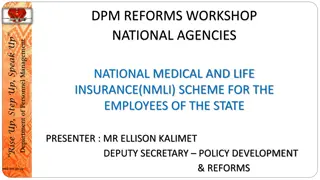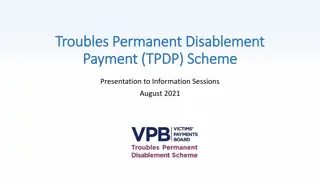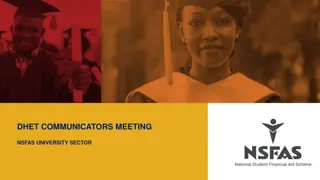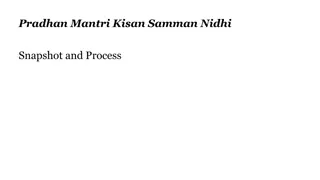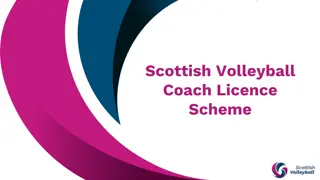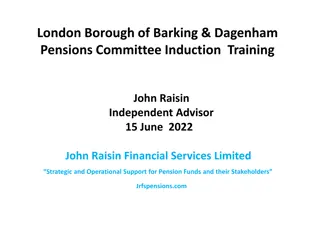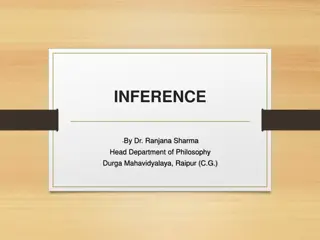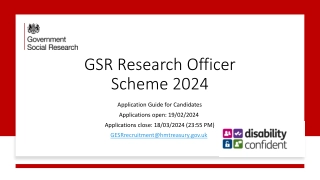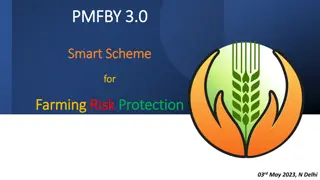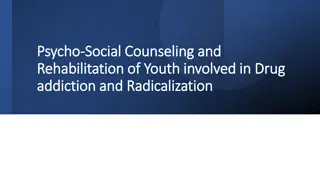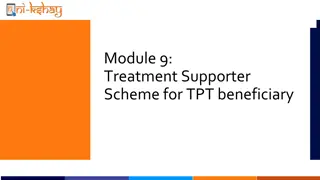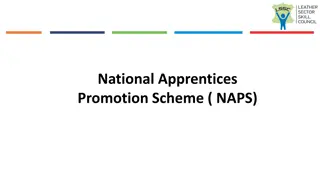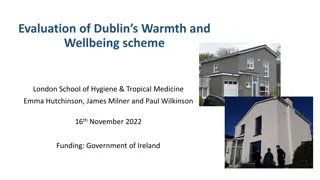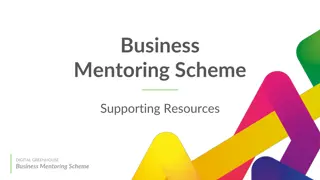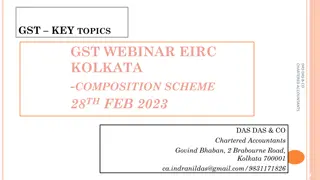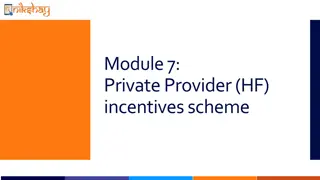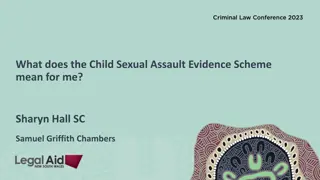German Year 9 Scheme of Work Overview: Term 1
This German Year 9 scheme of work overview for Term 1 covers phonics, communication, culture, and grammar vocabulary. It includes topics such as sound-symbol correspondence, verbs, vocabulary development, word families, plural forms, compound nouns, past tense, future plans, routines, and special events. The lessons focus on developing German-speaking skills through various activities related to modern lives, everyday culture, and past lives.
Download Presentation

Please find below an Image/Link to download the presentation.
The content on the website is provided AS IS for your information and personal use only. It may not be sold, licensed, or shared on other websites without obtaining consent from the author. Download presentation by click this link. If you encounter any issues during the download, it is possible that the publisher has removed the file from their server.
E N D
Presentation Transcript
German Y9 scheme of work overview: Term 1.1 PHONICS National Curriculum (See NC descriptors) SSC - Sound-symbol correspondence UNIT CONTEXT, COMMUNICATION, CULTURE KEY IDEAS & GRAMMAR VOCABULARY Long and short a UNIT 1 Modern lives and tall tales (Lessons 1-4) Being a musician Young German-speaking musicians Talking about actions in the present (1) Weak verbs (all persons) with simple and ongoing meanings Essential verbs To be, being SEIN (all) To have, having HABEN (all) Four words for you du, man, ihr, Sie (formal address) VSO questions (with/without WH-words) Verbs taking direct & indirect objects To develop vocabulary knowledge, we focus explicitly on some high frequency word patterns. To teach these patterns, a range of types of lexical item (e.g. frequent/infrequent; known/unknown) will be used as examples. We also develop learners knowledge of word families. Cognates Plural forms rules 1-5 Compound noun formation -ieren near cognate German verbs Verb and noun pairs [-er] [-ung] Suffix [-heit] for nouns 1, 2, 3, 4, 5, 7, 10, 12, 14, 15, 16 Long and short e Once upon a time (a story) SSC ei SSC z SSC w UNIT 2 Everyday culture (Lessons 5-8) Preparing for a (birthday) event Talking about actions in the present (2) Strong verbs (all persons) with simple and ongoing meanings Negation (kein / nicht) Numbers 1-100 Plural rules 1-5 Revisit SSC: a, e, ei, z, w Describing places and paintings in German-speaking countries SSC ie Continued focus on personalising students Wortschatz (vocabulary repertoire) UNIT 3 Past lives (Lessons 9 14) Finding out about people s lives Talking about when: now and in the past Childhood experiences: two Germanys Talking about actions in the past Past (perfect) weak and strong verbs Imperfect hatte, war, es gab Word Order 3 (single verb) + conjunctions wenn, als, bevor, nachdem Feminisation of person nouns Plural rule Using fr her ( used to meaning) Selecting vocabulary to write creatively
German Y9 scheme of work overview: Term 1.2 PHONICS CONTEXT, COMMUNICATION, CULTURE National Curriculum (See NC descriptors) SSC - Sound-symbol correspondence UNIT KEY IDEAS & GRAMMAR VOCABULARY UNIT 4 Wishes, future plans and priorities (Lessons 15 22) Talking about what you would like (to do) Christmas Market Talking about what you will do Talking about what is important Talking about what you will, would like and what it is important to do SSC [b] word final, before a consonant vs word initial, before a vowel Revisit [-er] Fluency practice Revisit past participle stress Verb stem +-er = person noun Word family: Arbeit Revisit nominalisation of verbs Fluency practice 24-hr and 12-hr clock (revisited) 1, 2, 3, 4, 5, 7, 10, 12, 14, 15, 16 M CHT- + nouns, + infinitive Future tense: plural forms WERDEN + infinitive Verb (vorhaben, planen) + zu + infinitive Uses of the infinitive: es ist + adjective, zu + infinitive Verb stem +-er = person noun UNIT 5 Everyday routines and special events (Lessons 23 26) Talking about everyday routines (featuring animal trainer Tatjana Zimek) Talking about festivals and traditions (Oktoberfest, Weihnachten in der Schweiz, Ramadan, Eid-al-Fitr, Ostern, Karneval) Talking about self-directed actions Revisit several SSC Fluency practice, applying SSC knowledge to unknown words in read aloud Reflexive use of verbs [1] reflexive vs. non- reflexive use (meaning change & no meaning change) singular & plural Revisit: R1(nom.)/R2(acc.) definite articles; dies-, jed-; alle; welch-; WO2; adjective agreement; zu + infinitive; modals + infinitive; capitalisation of nouns; R2/R3 prepositions; 12-/24-hr clock
German Y9 scheme of work overview: Term 2.1 PHONICS CONTEXT, COMMUNICATION, CULTURE National Curriculum (See NC descriptors) SSC - Sound-symbol correspondence Revisit several SSC UNIT KEY IDEAS & GRAMMAR VOCABULARY UNIT 6 New Year s resolutions (Lessons 27 28) Talking about new year s resolutions Finding out about Chinese New Year in Germany Giving reasons using 2-verb structures (WO3) WO3 with two-verb structures (future/modals) Add los to nouns for adjectives with the English equivalent -less or meaning without 1, 2, 3, 4, 5, 7, 10, 12, 14, 15, 16 Add suffix -te (1-19) and -ste (20-) to change cardinal into ordinal numbers (e.g. zweite, zwanzigste) UNIT 7 Family experiences (Lessons 29 32) Identifying neighbours Talking about props for a theatre show Working out the identity of the murderer in a murder mystery game Defining and describing people and things Relative clauses (defining) - R1 (nominative) Indefinite pronouns jemand, niemand (R1,2,3) Relative clauses (non-defining) [-d-] vs [d] [s-] [-s-] [-s] [z] [ ] or [ss] spelling rule Revisit prefixes Lieblings- und Haupt- UNIT 8 Past and present lives and experiences (Lessons 33 38) Finding out about famous people and their languages (Johann Wolfgang von Goethe, David J. Peterson, Johann Sebastian Bach, Konrad Duden, Cornelia Funke) Talking about childhood experiences (Rolf Zuckowski, Zahnmaus, Monate z hlen) Talking about moving to live in a new country Narrating past lives and experiences Word stress patterns Revisit SSC that are written differently but sound the same Revisit [ee | eh | e] vs [e] Perfect tense with SEIN - change of state verbs and exceptions Formation of past participles of separable verbs WO3 with two-verb structures (perfect) Imperfect modal verbs - 1st, 2nd, 3rd persons singular (WOLLTE(ST), MUSSTE(ST), KONNTE(ST)) Imperfect/Simple past plural forms of HABEN and SEIN (HATTEN, HATTET, WART, WAREN) WO3 with two-verb structures (imperfect modals) Revisit: future (plural forms werden + infinitive); vorhaben, planen + zu + infinitive; WO3 with single-verb structures; adjective endings (def. articles R1,2,3); years, dates; es gab; pp formation (separable verbs)
German Y9 scheme of work overview: Term 2.2 PHONICS CONTEXT, COMMUNICATION, CULTURE National Curriculum (See NC descriptors) SSC - Sound-symbol correspondence UNIT KEY IDEAS & GRAMMAR VOCABULARY UNIT 8 Cont d Past and present lives and experiences (Lessons 39 40) Extended reading Seiltanz Adel Karasholi Narrating past lives and experiences Revisit [ei] [ai] vs [ie] Ie vs i+e (two syllables) Add suffix keit to mean ty or - ness -ieren verbs Add suffix ung to a verb stem to change into nouns with equivalent and transparent meaning 1, 2, 3, 4, 5, 6, 7, 10, 11, 12, 13, 14, 15, 16 UNIT 9 Talking about things you like and would like (featuring Franz Marc) Talking about places you like and prefer (L beck, Potsdam, Frankreich, Polen, Glasgow) Talking about responding to emergencies (das Rote Kreuz) Talking about what you liked Talking about what you like, would like and prefer Word stress verbs [th] vs [t] + [h] Hopes, aims, travel destinations (Lessons 41 46) Welch- R3 (dative) Revisit: past (perfect) tense; m cht- vs m gen; plural nouns rules 1-6; numbers 1-1000, years; zero article with professions; gut/besser, gern/lieber; verbs + indirect objects; questions; WO3 + 2-verb structures
German Y9 scheme of work overview: Term 3.1 PHONICS CONTEXT, COMMUNICATION, CULTURE National Curriculum (See NC descriptors) SSC - Sound-symbol correspondence UNIT KEY IDEAS & GRAMMAR VOCABULARY UNIT 10 Positive experiences (Lessons 47- 52) Talking about helping out Talking about travelling to new places (Liechtenstein) Spotlight on Neuschwanstein Talking about making improvements at home Answering the question why (with um zu) Saying when, how, where you do things (TMP word order) Talking about what goes where Revisit [w] [v] Revisit time noun / adverb patterns (e.g., am Morgen / morgens) 1, 2, 3, 4, 5, 6, 7, 10, 11, 12, 13, 14, 15, 16 Revisit [sp-] [st-] [sch] False friends Revisit [u] [ ] um zu + infinitive clauses Imperfect modals SOLLTE(ST), DURFTE(ST) TMP word order UNIT 11 School exchange (Lessons 53 56) What you do for others in school Talking about a school exchange Saying what you do for someone else (using two objects) Giving reactions (using verbs with prepositions) Sentences with two objects Verbs + direct or indirect object Plural indirect object pronoun euch Verbs with prepositions an, auf, f r, vor Revisit [-b] [-d] Revisit [-g] [-ig] UNIT 12 What makes us happy? (Lessons 57 - 58) Extended reading short, authentic texts about happiness Talking about what makes you happy Giving explanations (using relative clauses) Revisit [er] [-er] Revisit several SSC Revisit: weil/denn; zu+infinitive; imperfect modals; pp formation; R2(acc.) vs R3(dat.) prepositions; reflexive and non-reflexive use of verbs; verbs with indirect objects; object pronouns uns, ihnen; relative clauses, comparatives, wenn+WO3
German Y9 scheme of work overview: Term 3.2 PHONICS National Curriculum (See NC descriptors) SSC - Sound-symbol correspondence UNIT CONTEXT, COMMUNICATION, CULTURE KEY IDEAS & GRAMMAR VOCABULARY UNIT 13 The future only with nature! (Lessons 59 62) Talking about concerns about the environment Presenting a case for/against Using da- and wo- with prepositions to refer back to things Giving extended opinions (dass + WO3) Uses of the word doch 1, 2, 3, 4, 5, 6, 7, 10, 11, 12, 13, 14, 15, 16 Revisit [-r] and [-r-] Introduce [qu] Prefix un- to make adjectives negative Wo-and da-compounds wo/darauf, wo/daf r, wo/davor Revisit: R2(acc.) vs R3(dat.) prepositions verbs of opinion; dass + WO3 + 2-verb structures Talking about past events Revisit the past (perfect) tense Diminutives chen and lein UNIT 14 Places and projects (Lessons 63 66) UNIT 15 Narrating a story (Lessons 67- 70) Talking about past journeys (German islands: R hr, Helgoland, R gen) Talking about past events (planning a charity concert) Young German personalities Understanding summary extracts from four Grimm fairy tales Practising inference with a poem (Joachim Ringelnatz) Orally interpreting a version of the tale der Rattenf nger (Pied Piper of Hamlin) Talking about what you wanted to do/be Talking about what you want to do in the future Famous young Germans Edina M ller, Ali Can, Luisa-Marie Neubauer, Florian Wirtz Sentence level intonation patterns Revisit [eu] and [ u] and [au] Narrating a story (using the simple past) Revisit hard and soft [ch] Simple past (imperfect) regular (and highly frequent irregular) verbs - 1st, 2nd, 3rd persons singular Revisit [j] and [y] UNIT 16 Past ambitions and future goals (Lessons 71- 72) Talking about past ambitions and future goals Revisit: TMP, present and imperfect modals; perfect tense; future
KS3 Languages National Curriculum and Knowledge strands matrix National Curriculum objectives Pupils should be taught to: NC no. Knowledge Strands Modes and modalities Recognition & Production (Sound to print L & W) Recognition & Production (Print to sound R & S) transcribe words and short sentences that they hear with increasing accuracy. 1 Phonics speak coherently and confidently, with increasingly accurate pronunciation and intonation. 2 3 4 listen to a variety of forms of spoken language to obtain information and respond appropriately. read and show comprehension of original and adapted materials from a range of different sources, understanding the purpose, important ideas and details, and provide an accurate English translation of short, suitable material. read literary texts in the language [such as stories, songs, poems and letters], to stimulate ideas, develop creative expression and expand understanding of the language and culture. initiate and develop conversations, coping with unfamiliar language and unexpected responses, making use of important social conventions such as formal modes of address develop and use a wide-ranging and deepening vocabulary that goes beyond their immediate needs and interests, allowing them to give and justify opinions and take part in discussion about wider issues identify and use tenses or other structures which convey the present, past, and future as appropriate to the language being studied. use and manipulate a variety of key grammatical structures and patterns, including voices and moods, as appropriate. Understanding (Aural (L) / Written (R)) Vocabulary 5 6 7 Production 8 (Oral (S) / Written (W)) 9 Understanding (Aural (L) / Written (R)) 10 11 identify and use tenses or other structures which convey the present, past, and future as appropriate to the language being studied. use and manipulate a variety of key grammatical structures and patterns, including voices and moods, as appropriate. express and develop ideas clearly and with increasing accuracy, both orally and in writing use accurate grammar, spelling and punctuation. write prose using an increasingly wide range of grammar and vocabulary, write creatively to express their own ideas and opinions, and translate short written text accurately into the foreign language. Grammar 12 Production 13 (Oral (S) / Written (W)) 14 15 16



